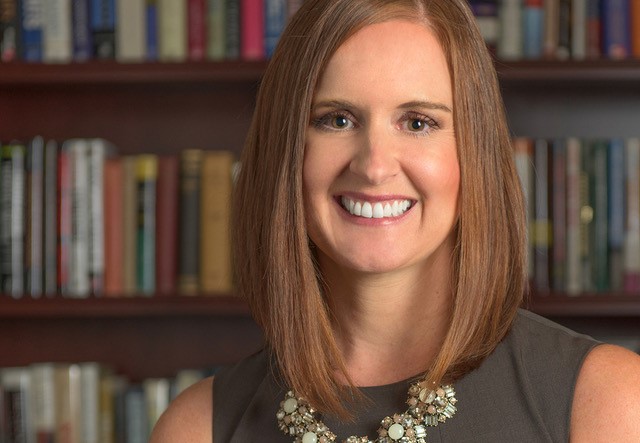
Liz Shabaker, CFP, CDC, CEO of Versant Capital Management.
BUSINESS NEWS, Az Big Media | May 18, 2021 | MICHAEL GOSSIE
In 1965, former British Prime Minister Margaret Thatcher said, “If you want something said, ask a man; if you want something done, ask a woman.”
Little did she know at the time, but what women have done in the years since is take charge of more than half of the personal wealth in the United States.
With more than one-third of the world’s wealth under their control, women have become a powerful economic force. And Arizona experts are seeing that burgeoning wealth impact our state.
“It’s estimated that about 70 percent of affluent-household investable assets are controlled by baby boomers,” says Liz Shabaker, CFP, CDC, CEO of Versant Capital Management. “As men pass away, many will leave control of these assets to their female spouses, who are often younger and live longer. Women are positioned to have a monumental wealth transfer over the next decade. At Versant Capital Management, we already see this impact. Women going through life transitions, such as widowhood, divorce or marriage, inheritance or the sale of a business, are coming to us to rethink their financial futures. Because a woman CEO leads our firm, we are sought out by women who want access to perspectives that are uniquely beneficial to them.”
Women with wealth generate power
Beyond inheritance, marrying or divorcing well, and widowhood, women are creating their own wealth — and wealth for others — like never before.
- More than 11.6 million businesses are owned by women in the United States, employing nearly 9 million people, and generating $1.7 trillion in sales as of 2017.
- Women-owned firms account for 39 percent of all privately held firms and contribute 8 percent of employment and 4.2 percent of revenues.
- Between 2014 and 2016, the number of women-owned employer firms grew six percent, double the three percent growth rate for employer firms owned by men. This was driven by a 14 percent increase in the number of employer businesses owned by minority women.
“I have noticed women more frequently seeking wealth management guidance in recent years,” says Stanton Shields, senior financial advisor at Alerus. “This can be somewhat attributed to their increasing share of executive positions in the workforce. As the playing field becomes more level, women are making more money than they have in the past and are seeking guidance to manage their wealth.”
Along with these business ownership and anecdotal changes among older women, younger affluent women are getting more financially savvy. Compared with five years ago, 30 percent more married women are making financial and investment decisions, according to recent McKinsey research on affluent consumers. And more women than ever are the breadwinners in the family, increasing the growth in their investable assets. McKinsey’s 2019 Women in the Workplace survey also showed a significant increase in the share of women in the upper levels of corporate America — 44 percent of companies now have three or more women in their C-suite, up from 29 percent of companies in 2015.
Handling wealth
As more women build and accumulate wealth through entrepreneurship, careers and inheritance, some studies show their approach to financial planning includes greater risk-aversion, while also being more open to new growth and investment strategies.
“It’s difficult to generalize because investing and risk tolerance are so different based on one’s life experiences,” says Sharon Karraker Cohen, senior vice president of investments at BOK Financial Private Wealth. “Most would assume women are more risk-averse than men. However, last year during the COVID-19 crisis, I had more men call, wanting to get out of the market or reduce exposure than women. In general, men talk about the winners they own, where women tend to be less vocal about their investments. Women are probably more patient as well.”
That patience is paying off. Women are increasing their wealth faster than ever before and adding $5 trillion to the wealth pool globally every year — outpacing the growth of the wealth market overall.
“To be clear, women are not a niche,” Shabaker says. “We can’t lump them into one standard category with one set of needs. But historically, women haven’t always been well-served by the wealth management industry. As more and younger women earn more wealth, they are asserting themselves as decision-makers over money-related issues.
Shabaker says women want understanding around handling a job and children, and they are looking for security and flexibility in managing their investments and planning for the future.
“My 25-plus years of experience has shown that men tend to be more open to investment risk, while women are more cautious,” Shabaker says. “Women probably value security and well-being more. Also, women generally tend to save for long-term goals and express that charitable giving is important to their wealth management plan.”
Money train rolling
With women amassing greater wealth than ever and their share of the global pot expected to grow significantly in the coming years — even faster than in years past — experts say it’s important to take the necessary steps to keep building wealth.
Their are five important steps women need to take in order to keep building wealth, according to experts:
- “Get your financial team together and make sure you have the right support,” Shabaker says. “With your team, develop a long-term plan and fully and confidently understand your situation.”
- “Establish a financial plan and don’t let emotions drive your investment decisions,” Shields says. “Market fluctuations will happen. Having a plan in place can help you avoid the temptation to make knee-jerk reactions and provide the peace of mind and confidence needed to endure short-term market changes.” Karraker Cohen agrees. “Part of the process is figuring out your goals and objectives, both short and long-term, determining a budget and understanding your risk tolerance,” she says.
- “Set realistic expectations,” Karraker Cohen adds. “If it looks too good to be true, it probably is. Be patient. Diversify. As Warren Buffett said, ‘The stock market is a device for transferring money from the impatient to the patient.’”
- “Educate yourself on types of investments, time horizon, asset allocation,” Karraker Cohen says. “If you can’t understand it, stay away.”
- “After you’ve developed a financial plan, meet with your advisor to conduct annual or semi-annual reviews,” Shields says. “This will ensure you are staying on track to meet your goals and allow you to make adjustments based on your overall plan, rather than simply reacting to short-term disruptions.”
Experts say it’s crucial for women to take charge of their financial futures by understanding their specific needs and objectives.
“It’s important that women understand and have control of their money,” Shabaker says. “My advice is to take the time to research and interview wealth managers and their firms to find the right professional to help you with your personal goals, interests, and unique situation. Having a customized plan that addresses all facets of your financial life is key to your overall well-being for both the short- and long-term.”
From Az Big Media
